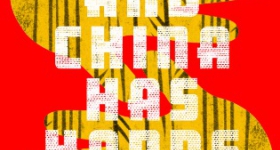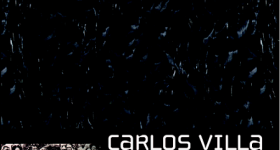The epigraph for David Mura’s first collection of poetry, After We Lost Our Way (1989) is a quotation from Walter Benjamin’s “Thesis on the Philosophy of History:” “nothing that has ever happened should be regarded as lost for history.”
For Benjamin, there was a moral imperative in describing an inclusive idea of history which would provide “the fullness of its past…for a redeemed mankind…[whose] past [has] become citable in all its moments.”
The prospect of a past “citable in all its moments” has been a central concern over David Mura’s distinguished and essential career. He has written extensively on how the vastly different forms of history: the personal, the intimate, the political, the sexual, and the global, all become intersectional and lyrical moments whose conjuring in the face of a potential forgetting carries a moral and ethical weight that could be ponderous if not for Mura’s marvelous poetic gifts. In his latest collection of poems, The Last Incantations (Northwestern University Press, 2014), Mura extends themes that have always been his obsession, but also extends the reach of his own poetics; he underscores the always already political and personal with a graceful and complex lyrical voice
In this new book, Mura continues and lengthens his meditations on history, race, sexuality, and identity with a furious urgency that speaks to so many emergent contemporary situations. Mura has already established himself as one of the essential voices of Asian America, but in this new collection, as he speaks to the intermingled issues of race, sexuality, and historical violence, he establishes himself as one of the essential voices of our contemporary world.
As I write this, the U.S. is reeling from a shooting rampage at the University of California, Santa Barbara’s Isla Vista that reportedly had racial and gender issues at its heart, 60 American Universities are being investigated for Title IX violations regarding how they handled reports of sexual assault, and Ta-Nehisi Coates has written an extraordinary article in the Atlantic arguing for slavery reparations. The timeliness of Mura’s poetry is unquestionable. His range is astonishing as he soars between the deeply personal stories of his own family, fragments of an imagined memoir by the famed Japanese artist, Isamu Noguchi, and dramatic monologues performed in the personas of a Vietcong soldier and the immortal Sherpa Tenzing Norgay, who hauled Sir Edmund Hillary to his famed first summit of Mount Everest in May of 1953. Mura’s aesthetic is polyvocal, dramatic, filmic, postmodern, and deeply intimate.
The first section of the book opens with the poem, “South Carolina Sea Island,” which finds the speaker crabbing with his sons as evening sets on an annual family trip. In a gesture reminiscent of Derek Walcott’s infusions of the Caribbean landscape with horrors of the Atlantic Slave Trade, Mura reminds his sons of how “Once slaves hid in these islands,” and wonders aloud, “Did they cipher barking hounds hunting [them]…Or chant rhythms and songs / to ward them back?” The implication here is that poetic utterance, like rhythms chanted and songs sung, might “ward…back” hunting hounds or whatever their contemporary symbolic equivalent might be. The poem closes with the sun setting:
The sky bleeds out its bruise; salt marshes swell
and darken the tide…as the night falls
about us quick and black, I tell them again
a history we can’t take back.
While the language is quite beautiful, the images themselves don’t idealize and aestheticize the landscape in an archetypically Romantic fashion. Instead, Mura’s language invokes the beauty of the scene while remaining cognizant of the material history of the landscape: the sun setting clouds of the reddening sky are described as bleeding “out its bruise,” suggesting at once the “history we can’t take back,” as well as pointing toward a hopeful future presumably embodied in the presence of his sons.

The author, David Mura
In “Song for an Asian American Radical: Yuri Kochiyama,” Mura provides a timely and unplanned elegy to the recent passing of the human rights activist. He imagines her chiding him for his dedication to “exigencies of meter, rhyme,” when there is so much urgency to her political causes, “all those years of fires / in Philly, Detriot, Oakland, Harlem, Watts.” And though he suggests that he closes the door on her, “if I shut / this door each time she vanishes farther,” he also concludes the poem with the relentless sound of her “knocking / night after night.” Mura makes Kochiyama a kind of guiding spirit to his own poetry. Her strident political activism, which she pursued unwaveringly throughout her entire life, becomes a fixed point on the shore for Mura—he infuses his intensely individual and intimate work with the constant shadings of the political and the public because he understands how the personal is always political.
He follows the short poem for Kochiyama with “Love Poem for Suheir Hammad,” the Palestinian American spoken word poet. Like a poem in his first collection, “Song for Uncle Tom, Tonto, and Mr. Moto,” “Love Poem” adopts a spoken word aesthetic that relies on rhythm, repetition, and parallel sentence structures that gesture toward hip hop without fully embodying that art form. But where that early poem adopted these iconic personas with a kind of subversive sarcasm (“and we were all good niggers, good gooks and japs, good spics and rice eaters saying mem sab, sahib, bwana, boss-san, señor, father, heartthrob oh honored and most unceasing”), this new poem speaks with an intimate closeness to the crisis of occupation in Palestine and the West Bank:
i’m still learning to write past the American
and lost land that shouts holy or war or power
and you miss your people and i have no people
and where we meet mirrors language as labyrinth
borders within syntax that cannot whisper dove dove dove…
i want healed what can’t be healed to write a love poem
as if no boy or girl had ever ever been shot in the head
The complex issues of language and colonialism and love intermingle in this poem’s urgent codification of Kochiyama’s imperative to be more politically active; while at the same time, Mura couches this all in the context of a love poem and illustrates the complexities of personal and political intimacies.
The concluding section of the book begins with a poem in which Mura imagines the Japanese poet, Basho returning home to “gaze at his ubilical cord / pickled in a jar.” Mura offers a melancholy portrait of Basho, “the last of his line,” who
kept feeling inside his
straw raincoat for a missing
limb or the hole where
the wind and rain
flew in.
The poem concludes with Basho returning to his hut “to gaze again at the jar,” and is, in many ways, particularly emblematic of the sixth and final section of this collection. A sense of useless sorrow permeates this poem—Basho is the “last of his line,” he is aimlessly groping inside of his coat trying to find what is already absent, and he ends up gazing at a jar holding a pickled and preserved artifact of his birth. The title, “Frightening Things,” provides a clear indication of how this poem is fits in this collection. Mura borrows from Basho’s imagined isolation and melancholy to illustrate the anxieties he himself feels not only with respect to his poetry, but also with regards to his children. The remainder of this concluding section is comprised of a series of poems where the speaker’s children feature prominently, and where the speaker considers what his willful sharing of the personal and intimate might mean not only in a political and historically structural sense, but also in the very real familial sense.
In some of the collection’s concluding poems, Mura confronts the emotional toll that his very particular and political art has taken on his family. In “What My Daughter Tells Me,” he notes, “She hates my poetry / and my secrets.” In “Aubade,” he worries, “How much longer / till I finally lose her?” and he concludes this poem describing himself as “a father / watching light sift slowly / into the daughterless dark.” David Mura’s work has always been confrontational and revealing; he has not shied away from intimate and troubling details of his private life. He has chosen to share stories of abuse, sexual infidelities, and personal failings; he has positioned these details in the context of U.S. racial and sexual politics and he has done so through incredibly vibrant and lyrical language. However, he has also grappled with the consequences of using his own life as the substance for his attempts to illustrate the deeply intimate and damaging consequences of racial and gendered bias.
Here, at the end of this elegant collection of poems, Mura takes one more step forward and gives voice to the effect his work has had upon his children. But rather than simply result in a kind of mea culpa, Mura’s move here only serves to further underscore the deeply problematic and lasting effects of structural racial and gendered violence; violence that is all too often turned inward to devastating effect.
-
Roy Kamada is an Associate Professor of Literature at Emerson College.









Comments